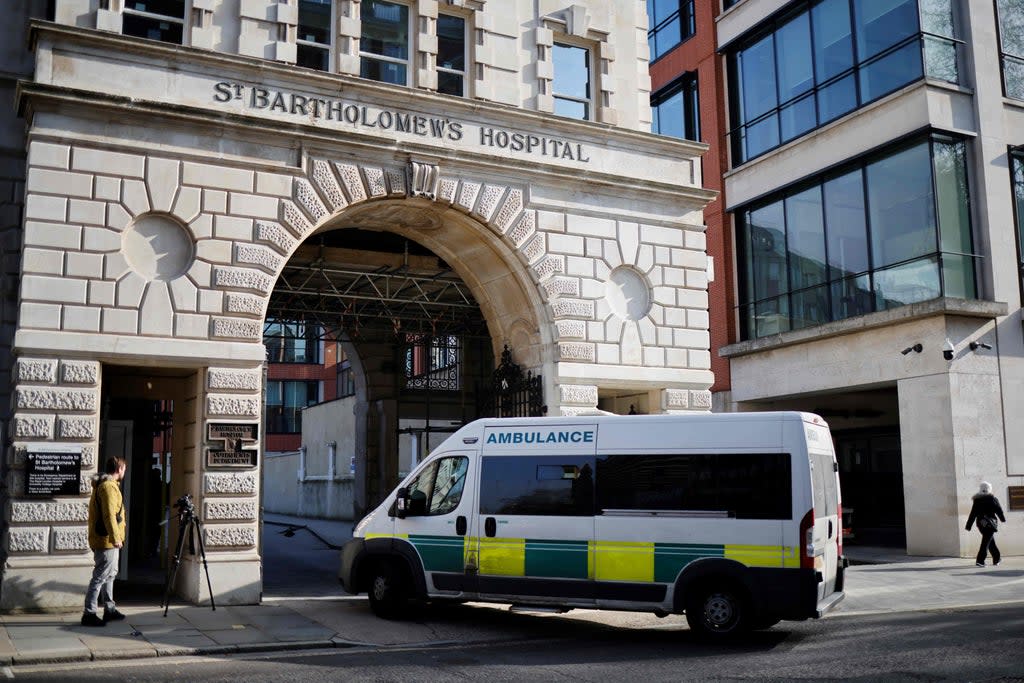NHS Covid delays: Patients to be offered quicker treatment... if they’re prepared to travel further

Patients will be offered speedier treatment if they are prepared to travel further under a growing partnership between seven London hospitals.
Bosses at Barts Health and Barking, Havering and Redbridge NHS trusts hope “closer collaboration” will help them to reduce the Covid backlog of patients awaiting non-emergency care and enable them to share the burden of a feared deluge of A&E attendances this winter.
Jacqui Smith, the former Labour Home Secretary, becomes joint chair of the two trusts next week and will lead efforts to encourage staff to work together.
A list of 12 “priority areas” for joint working was published on Wednesday that involves treating Barts patients undergoing planned care, including those recovering from cancer, at King George hospital in Ilford.
More than 300 patients have already been transferred from Whipps Cross, in Leytonstone, to King George for endoscopies.
Another “immediate” aim is to improve urgent and emergency care, especially at King George and Queen’s in Romford.
Almost 50 patients requiring the urgent replacement of pacemaker-style cardiac devices were treated at King George rather than Barts Heart Centre, part of St Bartholomew’s hospital, where the pandemic caused the waiting list to lengthen.
Eight consultant cardiologists now work across both trusts and the hope is that the sharing of staff can reduce the reliance on agency nurses. However the geographical distance between the hospitals may limit the feasibility of staff working at more than one site.
The Early Diagnosis Centre, which opened last year at Mile End hospital, is another joint venture - also involving Homerton hospital in Hackney - which will carry out 16,500 procedures annually on those living with conditions that increase the risk of cancer.
In a joint statement, the two trust chief executives, Dame Alwen Williams, of Barts Health, and Matthew Trainer, of BHR, said: “This is not just about two trusts working in tandem, but about how our collaboration benefits the seven boroughs our hospitals serve.”
The trusts worked in collaboration during the peaks of the covid pandemic, in particular in trying to meet the “urgent requirement for extra critical care beds”, when there was a need for twice as many as were available. Two extra floors of intensive care beds were eventually opened at the Royal London hospital.
An urgent and emergency care hub followed, and the trusts also co-operated amid fears that the use of high-pressure face masks would cause the hospitals to run out of oxygen.
Work was done to speed the discharge of patients as they recovered from covid and the “principle of mutual aid is now well established across north east London”, the trusts said in today’s announcement.
Read More
Project housing homeless for life-saving treatment up for award
‘Perfect storm’ of more Covid, soaring A&E demand and staff exhaustion

 Yahoo Movies
Yahoo Movies 
